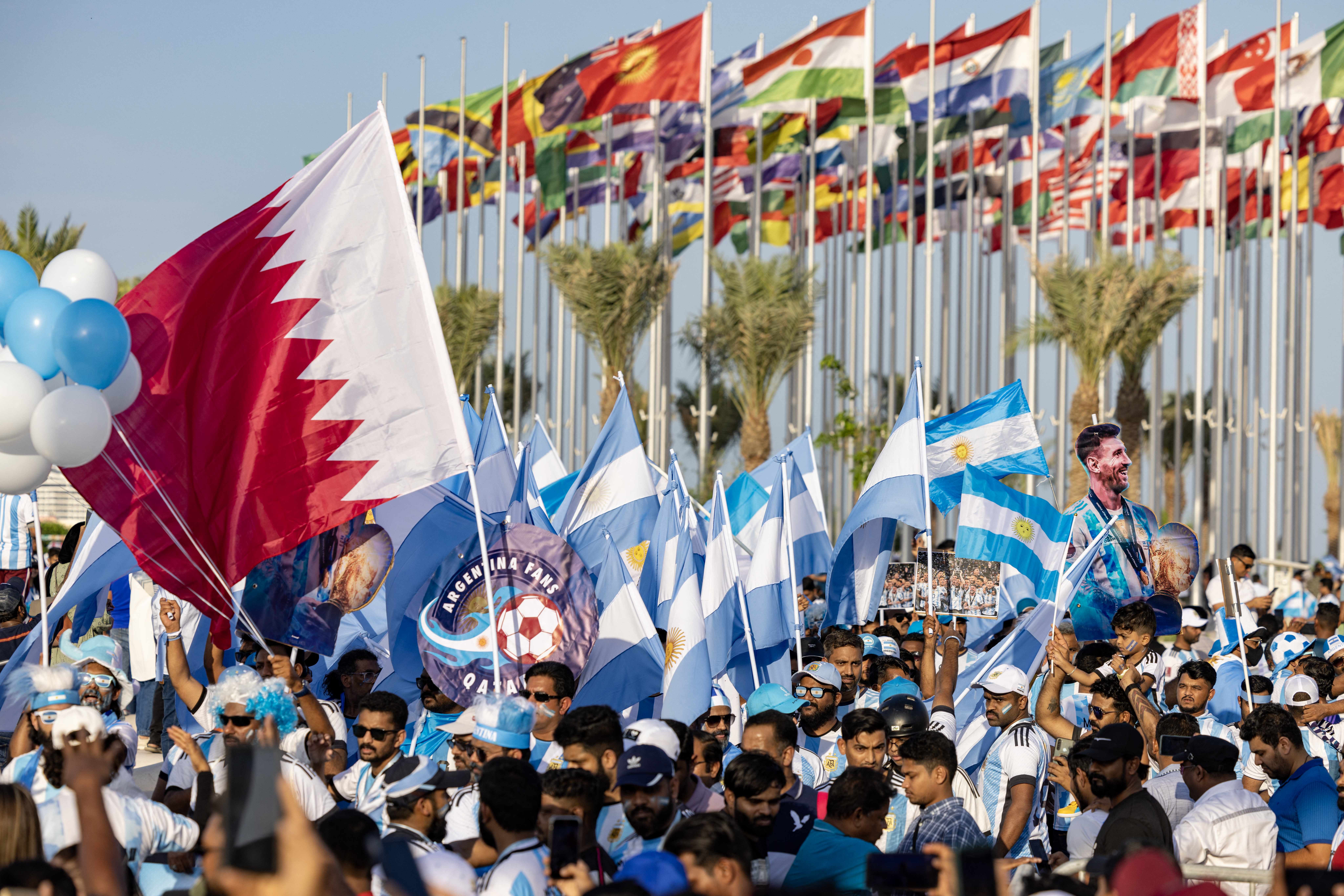
Qatar will host one of the most hotly disputed World Cups ever from November 20.
These are the main disputes that Qatar has fought since FIFA made the decision 12 years ago:
The surprise vote
FIFA leaders created a sensation on December 2, 2010 when Qatar beat the United States in a fourth round of voting for the 2022 World Cup. US President Barack Obama called it the “wrong decision”.
At the time only one of the eight World Cup stadiums existed and many doubts were raised about whether the energy-rich state would be ready to host one million football fans.
Corruption allegations
In August 2012, FIFA’s ethics committee starts an investigation, led by former US prosecutor Michael Garcia, into voting for the 2018 World Cup in Russia and 2022.
Hans-Joachim Eckert, head of the committee’s adjudicatory chamber, said in his summary that Qatar and Russia had been cleared of wrongdoing. Garcia hit back that the summary was “materially incomplete”.
The report was finally published in June 2017. It highlighted some suspect financial transactions but nothing to justify taking the World Cup from Qatar.
Since 2019, France has had a corruption inquiry into a lunch on November 23, 2010 between President Nicolas Sarkozy, UEFA president Michel Platini — who provided four European votes — and two senior Qatari officials.
French media later reported a diplomatic note on the lunch which said the World Cup, fighter jets and anti-missile defences would be discussed.
The winter World Cup
In January 2014, FIFA’s secretary general Jerome Valcke said that the 2022 World Cup would be held in the winter months of November-December for the first time because of the fierce heat in Qatar during June-July when temperatures can reach 50 degrees Celsius (125 Fahrenheit). In 2015, the FIFA executive committee confirmed that the dates would be November 21 to December 18. The opening game was brought forward to November 20 so that it would feature Qatar.
Europe’s top leagues are annoyed because it means they will have to stop playing for more than a month.
World Cup casualties
Amid growing criticism of Qatar’s human rights record, the International Trade Union Confederation released a damning report, “The Case Against Qatar”, which said migrant labourers live in “squalor” and work in “unbearable heat”.
Under pressure from international unions, Qatar starts major reforms from 2017 including dismantling most of the ‘Kafala’ employment system that meant labourers could not change jobs nor even leave the country. It introduced a minimum wage and new regulations on working in heat.
Human rights groups say thousands of workers have died on Qatar’s mega construction projects over the past 15 years. ITUC disputes the figures and its leader said in 2022 that Qatar had made significant progress that made meant it had no objection to the World Cup.
The International Labour Organisation quoted government figures as saying that 50 workers died in industrial accidents in 2020.
Amnesty International, Human Rights Watch and other groups launch have demanded that FIFA and Qatar launch a compensation fund for migrant workers with $440 million, the figure given in World Cup prize money. Several sponsors and national federations back the call.
The rights of women and the LGBTQ community in Qatar also come under international scrutiny. Homosexuality is a criminal offence. World Cup organisers say that all fans will be “welcome” without discrimination but do not defend the laws.
World Cup environment debate heats up
FIFA has said that the 2022 World Cup will be the first ‘carbon neutral’ tournament, raising the ire of environment campaigners.
A FIFA report released in June 2021 estimates that the 2022 World Cup will be responsible for 3.6 million tonnes of carbon dioxide, against 2.1 million tonnes for Russia 2018.
The Carbon Market Watch environment group says that the footprint of Qatar’s eight stadiums has been under-estimated by up to 1.4 million tonnes.
Qatar organisers highlight how having eight stadiums in the Doha region means there will be no flights between cities and that emissions are also reduced by a new electric metro system and the use of electric buses. Critics say that more than 100 shuttle flights a day from other Gulf cities will increase carbon emissions however.
Qatar has air conditioning in seven stadiums but it is not yet clear whether it will be used.

World Cup News
-
FIFA World Cup
/ 1 month agoSon scores but Thailand hold South Korea in World Cup qualifier
Son Heung-min scored but South Korea were held 1-1 at home by Thailand in...
By AFP -
FIFA World Cup
/ 1 month agoJapan-N. Korea World Cup game to stay in Pyongyang, JFA says
Japan’s World Cup qualifier against North Korea will be played in Pyongyang as planned...
By AFP -
FIFA World Cup
/ 2 months agoGerman ex-FA bosses on trial over World Cup tax evasion
Three German ex-top football officials went on trial on Monday in a 13.7-million-euro ($14.8...
By AFP -
FIFA World Cup
/ 2 months agoSaudi Arabia formally launches bid for 2034 World Cup
Saudi Arabia formally launched its bid to host the 2034 World Cup on Friday,...
By AFP

Coppa Italia
Milik fires Juventus into Italian Cup final

English Premier League
Five-star Arsenal thrash Chelsea to open up Premier League lead

American Football
NFL Chiefs extend contracts for coach Reid, top execs

English Premier League
Feyenoord boss Slot leading race for Liverpool job – reports

English Premier League
Unai Emery extends Aston Villa contract

English Premier League
Watch: Ten Hag says reaction to Manchester United FA Cup win a ‘disgrace’

English Premier League
Nottingham Forest to get access to VAR audio after penalties furore

BOV Premier League
Ten Maltese clubs awarded UEFA License

Winter Olympics
Watch: Geisenberger wins sixth Olympic medal to tie luge record
























